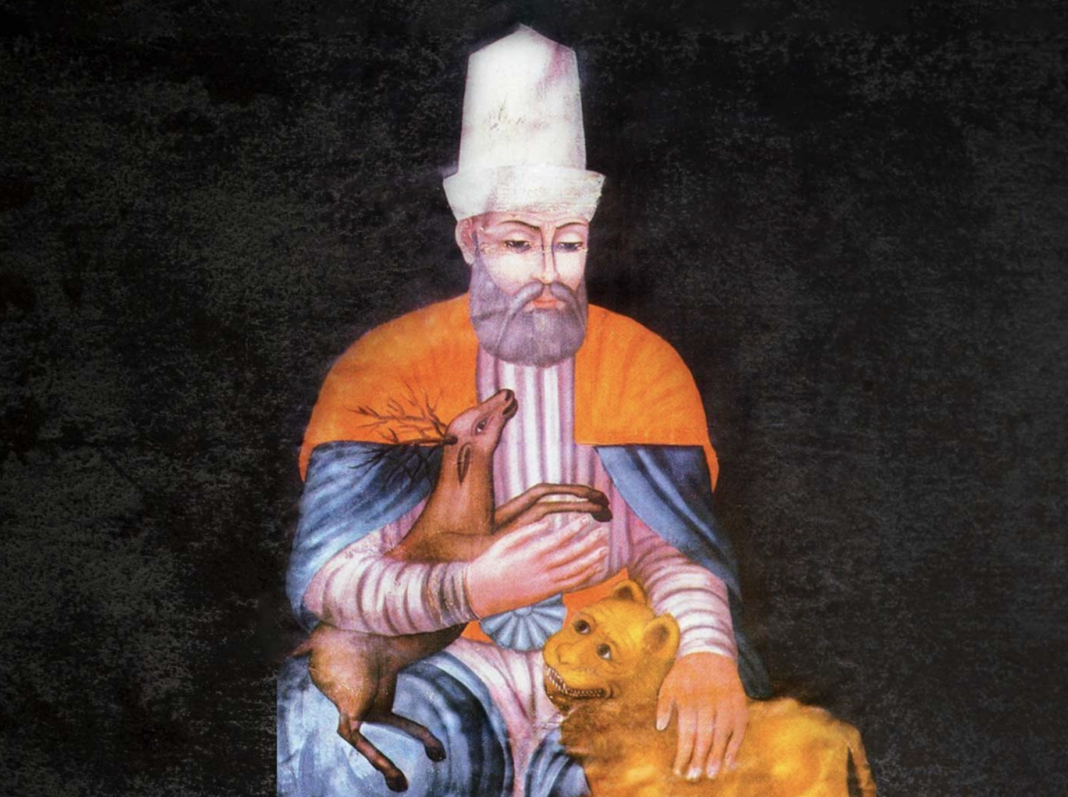
November 2023 – 5 November 2023
Diving into the fascinating worlds of Alevism and Bektashism, the symposium will explore the spiritual, historical and anthropological dimensions of two intertwined mystical traditions with roots in the Persian Khorasan that were shaped and later flourished in Anatolia and the Balkans after the 14 th century until the present day.
By focusing on the philosophical, religious, political and social context within which the Bektashi and Alevi communities existed, their interactions with surrounding communities, and the transformations they underwent within specific multi-ethnic, multi-religious and multi-lingual environments, the symposium will attempt to present the trajectory of Bektashism and Alevism from their origins to the present day.
International symposium:
Bektashis and Alevis in the Balkans and Anatolia
Worldviews and practices through ages and spaces
3-5 November 2023, Kavala, Greece
Organization Committee: Evangelos Areteos, Giorgos Mavrommatis, Zeynep Turkyilmaz
This symposium – the first international symposium of this kind to be held in Greece – attempts to explore the historical route of the Bektashi and Alevi communities that stretch from Anatolia to the Balkans, from medieval times to the present day.
By focusing on the philosophical, religious, political and social context within which they existed, their interactions with surrounding communities, and the transformations they underwent within specific multi-ethnic, multi-religious and multi-lingual environments, the symposium attempts to present:
- the highlights of the trajectory of Bektashism and Alevism from their origins to the present day
- the understandings of the world that Bektashis and Alevis have constructed and how these intertwine with their practices and strategies
- the ways in which the beliefs and practices of Bekashis and Alevis have thrived or been challenged in different political and ethnic contexts, resulting in the stigmatization of these communities.
The presentations and discussions at the symposium will expand on issues such as spirituality and rituals, lineage and hierarchies, the role of the Bektashis in the Janissary corps, the radical restructuring after 1826, and the revival during the Tanzimat period, the transition from pre-modernity to modernity and the repositioning and actions of the Bektashis and Alevis within nation-states as well as the survival strategies of communities, communal behaviours and rituals and the meanings of expressions such as “silent” community, ‘”neo-Alevism” in Europe, etc.
Day one, 3 November 2023
15:00 Introduction.
Islamic mysticism and Sufi orders (tarikat): a religious and social phenomenon
Aggeliki Ziaka: Islamic mysticism, Soufi orders and Bektashism
Konstaninos Tsitselikis: Islam in modern Greece: From the Ottoman Empire to
the nation state.
First panel: Historical and religious origins of Alevism-Bektashism
Riza Yildirim: Formation of the Bektashi Spiritual Genealogy (Silsila): A
Revisionist Look at the Formative Period of the Bektashi History”
Martin van Bruinessen: Bektashi Networks and Origins
Zeynep Aydogan: Before Bektashism: Cult of Saints and Forging Paths of Continuity
Heath Lowry: Bektashi shrines, holy places and architecture
Day two, 4 November 2023
9:30 Second panel: The state and the Alevis-Bektashis
Gulay Yilmaz: The Janissary-Bektashi Nexus: Exploring the Interwoven History and Socio-Political Dynamics until 1826
Cem Kara: The Closure of the Bektashi Order in 1826 and its Religious and Discursive Repercussions
Zeynep Turkyilmaz: Between Surveillance and Resistance: The Alevi-Bektashi communities during the Hamidian era
Brett Wilson: Bektashi Lodges in the Turkish Republic
11.30 Third panel: Bektashi–Alevi communities in the Balkans, Greece and Europe
Sara Kuehn: Albanian and North Macedonian Bektashism in the Post-1990s
Yilmaz Kahraman: Alevism revival in Europe
Giorgos Mavrommatis and Ayse Karahuseynoglu: A historical overview of Bektashism in Greece: People, spaces, traditions and spiritual interactions
Evangelos Areteos: The Alevi-Bektashi in Greece: A contemporary case study
Aggeliki Ziaka: Brief presentation of the ICE project with photographs from Bektashi-Alevi fests in Thrace
Lunch
15.00 Fourth panel: Bektashi spirituality and practices
Mark Soileau: The Perfect Human in Bektashi Discourse and Practice
Ayhan Aydin: Tekkes and Babalar: A spiritual network. Holy spaces, nature and holy men
Melih Duygulu: Bektashi Music in the Balkans
16.30 Fifth panel: A modern “muhabet”
Moderator: Zeynep Turkyilmaz
Ahmet Karahuseyin: President of the committee of the Alevi Muslims in Thrace
Dertli Divani: Alevi aşık, Turkey
Huseyin Sinan Ulusoy: Haci Bektas, TurkeyCemalettin Aydin: Haci Bektas, Turkey
Hisen Sulejmani: Researcher-writer. World Bektashi Center, Albania
Partcipant(s) from Bulgaria (name(s) to be confirmed)
Day three, 5 November 2023
Visit to the Sayid Ali Sultan Tekkesi and November Fest (Kurban) of Mürsel Bali
(facultative)

